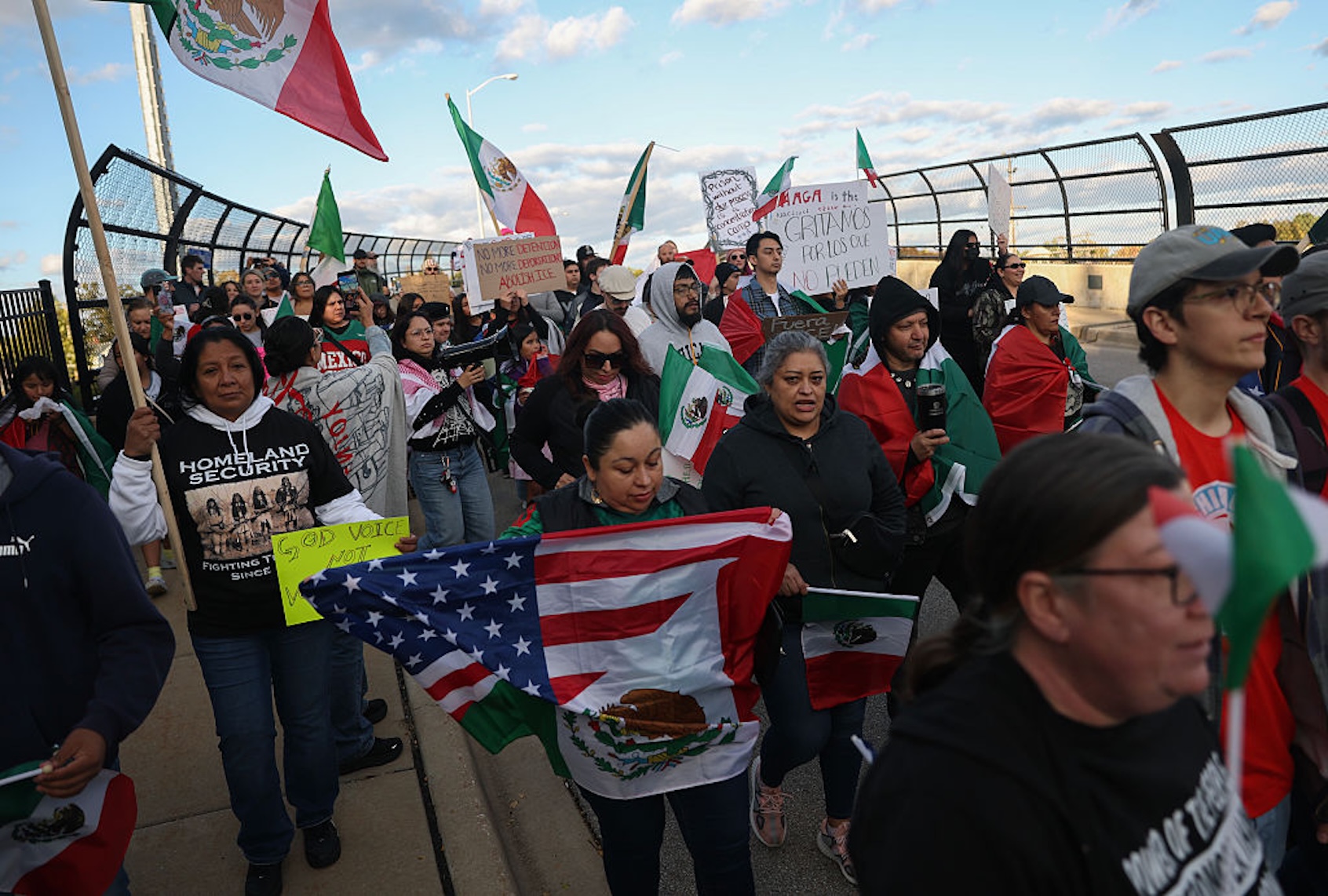The administration’s theater of cruelty has everyday people asking “Am I next?”
At the top are undocumented immigrants that Trump and his allies claim are “destroying the American republic…[and] the American people and our social cohesion.”
These individuals are not well-known. They are everyday people who have fallen on the wrong side of the “friends and enemies” distinction that animates Trumpism and its theater of cruelty. Almost daily, in Democratic-led cities and parts of the country like Chicago, Trump’s mass deportation campaign produces harrowing scenes.
At Chicago O’Hare International Airport, Border Patrol agents swarmed rideshare lots in search of “illegal aliens” and arrested 11 people. Food vendors are hiding. Restaurants are losing money and in danger of closing because their staff are afraid to go to work. Landscapers and other laborers are also being targeted.
No place is safe. Immigration and Customs Enforcement agents are also violating schools, churches, courthouses and other sanctuary zones in search of people who are not violent criminals or some great threat to society. They are working-class people who are providing an essential service to their neighbors and the larger community.

https://www.salon.com/2025/10/26/trumps-deportation-raids-ensnare-chicagos-everyday-workers






